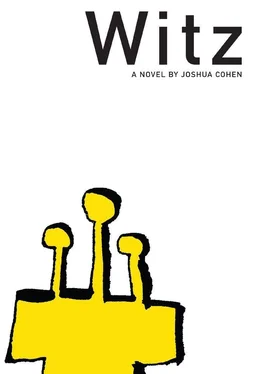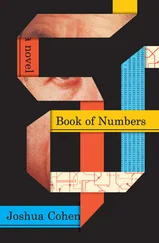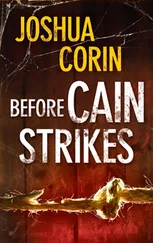Inside, behind the counter, an aproned mensch about to untie, fold, sweep crumbs, close up, and head home — just a moment, though, wait up, a mitzvah Israel’s asking, lawyerly arguing the Closed for Business he’s earned it, telling and tsking his merit, all these long years a loyal customer fast with exact change and his wife, how he should know him by now and this late, he’s just saying, Mister Baker with the apron and hat and three doughy chins, the floury cheeks, it would pay to know him here every week, and so why not a dozen egg kichel thrown in for free, every once in a while, just asking just asking, two loaves, if you have them, I’m in too much of a rush.
I’m sorry, the baker’s saying, I don’t remember you, Mister…
Israelien, he says, I’m just saying is all, having my fun — and now as if in apology: my wife, she usually bakes.
My wife, he says, doesn’t even know how to cook. I should tell you — feel lucky; except that I’m sorry, all I have left are two loaves.
I’ll take them, how much?
But they’re for me, my wife and my — tell you what, I’ll break with you bread.
Here’s a loaf, one of mine. You can always cut it in two.
Israel blushes the blessing, can’t find the thanks this harried and sanctified in surprise, and so he cleans out his wallet, hands to the counter too many bills.
The baker nods as he takes one of the pair out of their bag to bag it separately now, paper in plastic, the braided better and larger and wider and more goldeny done one, a single loaf challah, honeyglazed fresh, hands it over.
Have a wonderful Shabbos! he smiles Shalom, and he waves, while with his other hand scooping up the money then shoving it all down into the full box for charity positioned alongside the register, which is empty and anyway broken.
Give my regards to our God!
Israel leaves the store to the shrill disapproval of bells, a jingling that reminds him of the phonecall he never made to tell his wife, sorry.
To console: at least I’ll get home before Shabbos the next, but he’d used that the Shabbos before. And so to blame: whether Loreta, which client or car trouble, my shadow’s always making me late; him to tell Hanna later: I only wish it’d come along Monday mornings, there’s barely a minyan at shul.
In the synagogue’s lot, he parks himself over the three spaces of the Rabbi, the Cantor, the Building Supervisor, and leaves it there, the car, to be pickedup come motzei, that Sunday or Monday with Hanna dropping him off or Wanda, more plans, ever more preparations, who knows, maybe he’ll walk, even run, please God and his doctors at once — in a rush, just a duck for a daven, putting in an appearance; after all, he’s the president, too. Arriving only for the last lines of the night, the chazzanut cluck, the salty warble, he speeds his prayers silent then shakes all around hands, fins and wings, distributes free legal advice. Problems solved. Call me later this week, that shouldn’t be difficult. Consulting with the drumsticks and scales: the poultry knobby, the slippery fish, gathered to pray for the grace of a soul. They slither and stomp, they flop and squawk. It’s a commotion, a crowd, how he feels much the same way with his kinder: removed, held high above their messes and fits; the bestial consuming the oneg — he’s tired, so tried. And desirous of quiet.
The street: eternally lamped, but an unholy emptiness, not so much superiority as the need for its silence, him wanting to be left, if only for a moment, by himself, alone…Godless though wellmarked, turns reft and light familiar, then a detour Israel knows isn’t any shorter through the huddling woods, scrubby shrubs and hedgerows, through yards of happinesses (and sadnesses, also, he tries not to think of) he can’t claim, hopes rickety swung see to saw, junglegym to sandbox, to garden and herbplot, steps over scattered toys, the dispersal by wind of deflated balls, the dashed heads of dolls, then up the slate path toward the broad cedar door that guards them inside — suddenly, skirting around, past the enclosure for trash then to the door at the side, he knocks at it softly, as if testing, then opens.
Aba’s home. Bramblebound from the walk. There are steps over the threshold. He shuts the door behind him and locks.
A daughter descends, Isa he thinks, Asa she is, Israel drapes his coat over her head: the coat gray and old and wet a little and hot with him to be hung in the closet and not draped on the pillows of the bed, the foldout, the couchbed, the sofa convertible, in any spareroom whose hospitality has been furnished exclusively for the coats of the guests. He takes off his suitjacket, drapes it on a kitchencounter, then loosens his tie from underneath his collar unbuttoned, leaves it in its knot to remind: the day no longer strangling, not yet forgotten, never freeing; still complex, still coiled, prepared for the tightening come what may the next week.
How was your day? Hanna not waiting for an answer to the both of them asking; her nudging a trunk with a heel then examining, resentment, the damage done to her manicure while he greets his guests, whoever’s arrived. Though with not all of them yet and her not telling him that, letting him search and find only the regulars, the usuals and not his new partner already with his wife or the girlfriend, what’re their names, he comes back down the hall to embrace her — though her hands, without hug, are only held out to take the challah from him, and her mouth, which refuses his kiss, only tells him, instead, in a whisper: go upstairs, get thyself changed.
Hanna sits on this trunk as a handful of the oven’s guests gather, the wives just standing around, loafing, examining Israel’s purchase, passing it around for inspection — the single loaf he’s halved while at shul she hefts in her hands again then puts back in its bag to hand to Rubina who takes it to table.
How it’s unspoken, all of it — obvious to every guest that these trunks have been sitting here forever, for months, for years, incurring feminine disapproval, raised brows, the forcing of coughs; that there’s about as much possibility of them moving them as them moving themselves, though Hanna would explain, smoothing her dress folded around her as if she’s a package, merely wrapping, a box or container herself, short and breasty — her legs dangling, calves white above the veins, their skein’s twine:
We’ve been meaning to move them, but you know how things are…telling them they know, and, as if mystics or prophecy, they know: what with my philanthropic activities, thanks for reminding, how much I volunteer, the tzedakah, the charity with which I chair the meetings of schoolboard and then with the kinder: two of them aren’t in school yet and one, she goes only halfday. Nat.
I’ve got to drop them off then pick them up then drop them, the activities afterschool, extracurriculars, the clubs and the sports, tennis and swimming, enrichment, the study groups and all the projects, the labs and ballet, painting, piano lessons in violin and voice, tutoring, college applications and visitation, the cancer hospice and the old peoples’ home, the youthgroup and shul and, our Wednesday schedule’s the worst…as she leans to pick at the trunk, at a wig’s hairs from a wrinkled length of tape, gray duct that’s lost much of its stick.
Is’ schedule is packed, too, you understand: always running from one thing to the next, like a headless dinner; he knows this jeremiad well, rolls eyes from upstairs, news travels fast: that’s where the kinder get it from, my girls…they’re scared of the basement, and Wanda has today mostly off — explaining the arcane processes of packing and unpacking, of storage and steps, stairwells and ways, of narrow closetless hallways not enough space for all this, yardsale, rummagesale, waspnests in attics, of sumppump problems in the basement still partially unfinished as if to say, so shoot me and sue my corpse, this overworked, overtired body of mine and, nu, we’ve gotten sort of used to them here, patting, petting, the slow fall of dust moonlit through the windows.
Читать дальше












